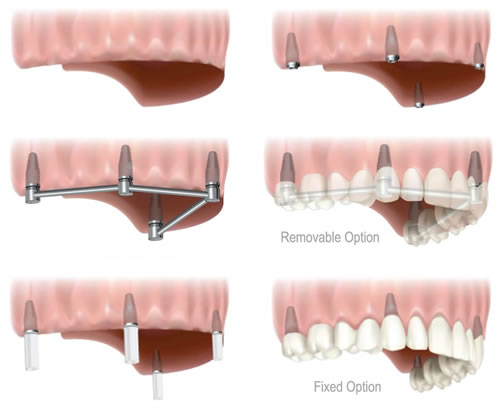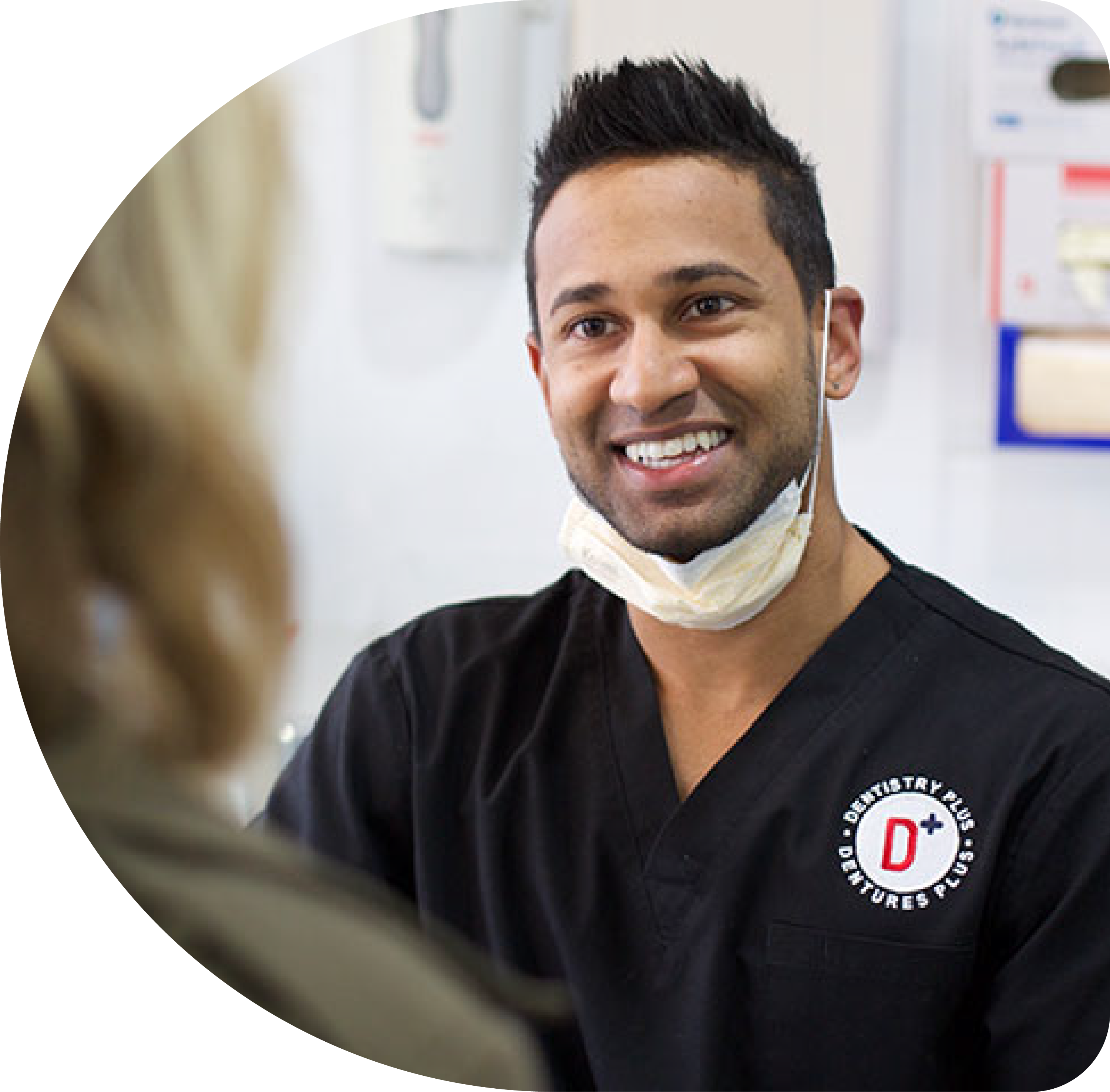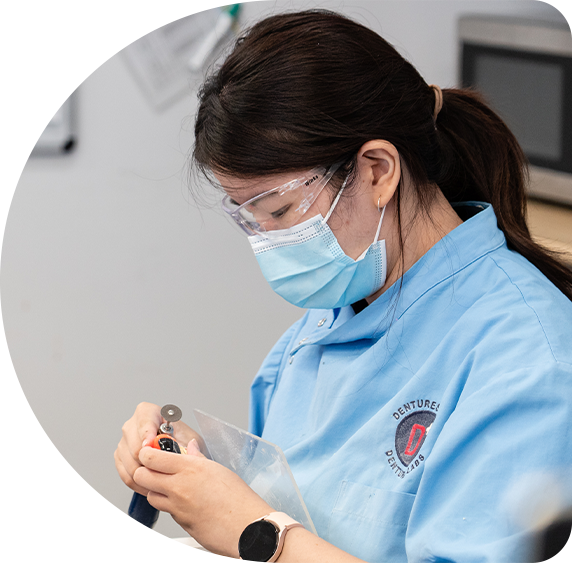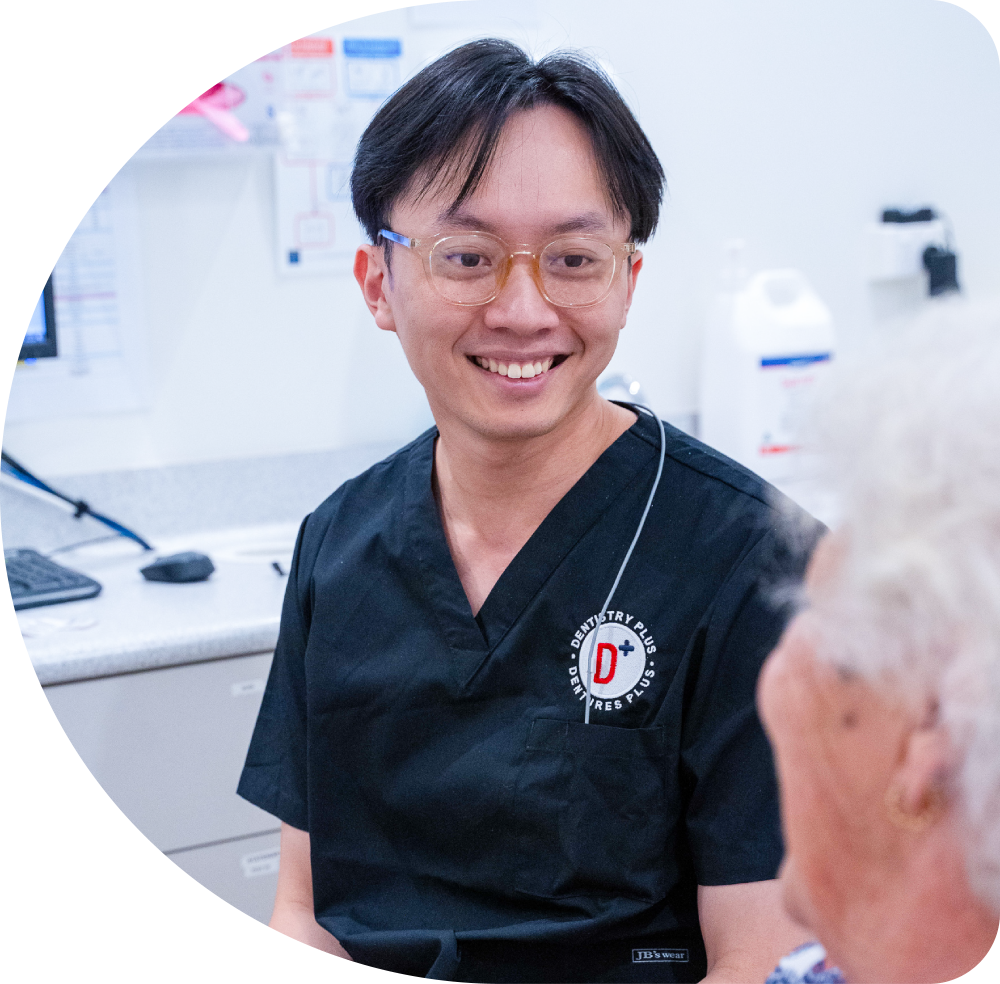
Secure, comfortable and bone preserving
If your dentures are loose, uncomfortable, or limiting what you can eat — it might be time to consider implant supported dentures.
Also known as snap-in dentures, this innovative treatment combines the convenience of dentures with the stability of dental implants. Unlike traditional dentures that rest on your gums, implant retained dentures anchor directly to your jaw — giving you a stronger bite, more comfort, and long-term protection against bone loss.


More on implant supported dentures
One of the most important benefits of implant-supported dentures is their ability to help preserve the jawbone and prevent long-term bone loss — known as bone resorption.
Traditional dentures simply rest on the gums. Over time, without the stimulation that natural teeth or implants provide, the jawbone beneath them starts to shrink. This bone loss can lead to a sunken facial appearance, looser denture fit, and the need for constant relining.
Implant dentures work differently. Because they are anchored directly into the jaw, they provide the stimulation your bone needs to stay strong — helping maintain your facial structure and oral health for years to come.
Struggling to chew properly with traditional dentures? You’re not alone — conventional dentures offer only around 10% of the bite strength that natural teeth provide.
With implant-supported dentures, that number jumps to up to 75% — giving you the strength and confidence to enjoy a wide variety of foods again, including nuts, meats, raw vegetables, and crusty bread.
This increased chewing efficiency can lead to:
- Better digestion
- Improved nutrition
- A more enjoyable, unrestricted diet
- Greater confidence during meals and social settings
For many of our patients, the ability to eat properly again is nothing short of life-changing — and one of the most loved benefits of implant dentures.
At Dentistry Plus, we’ve helped hundreds of Perth patients restore their smiles and confidence with secure, comfortable implant-supported dentures.
What sets us apart is our in-house team of experienced dental prosthetists and fully equipped dental laboratories located within each of our clinics. This allows us to:
- Maintain full control over the design and quality of your dentures
- Minimise wait times and reduce back-and-forth adjustments
- Ensure every denture is custom-made for the best fit, comfort, and appearance
When you choose Dentistry Plus, you’re not just getting a denture — you’re getting a team of implant denture specialists working together under one roof to deliver superior results.
One of the greatest benefits of implant-supported dentures is the freedom to smile, laugh, and speak without fear. No more holding back. No more worrying about your dentures shifting or falling out in public.
Because implant dentures are securely anchored, you can enjoy everyday moments — chatting with friends, dining with family, sharing a laugh — without feeling self-conscious or anxious about a denture “drop-out.”
It’s a solution that doesn’t just restore your teeth — it restores your confidence.
Basically, you can enjoy teeth that:
- Stay securely in place — no slipping or rocking
- Preserve jawbone and facial structure by preventing bone resorption
- No need for messy denture adhesives
- Eat a wider variety of foods — including crunchier, healthier options
- More natural feel with less bulky plastic in the mouth
- Improve speech and pronunciation
- Reduce gum pain, sores spots, and irritation
- Boost confidence when eating, laughing, and talking
At Dentistry Plus, we use TGA-certified dental materials and proven techniques to create custom, comfortable implant-supported dentures tailored to your smile and bite.


Easy finance to help you
access dental care

Smile Now Pay Later
There’s no risk. If you don’t get approved, it won’t impact your credit score.
We partner with Pretty Penny Finance* to provide this service.
* Dentistry Plus Pty Ltd ABN 32 605 704 523 – Credit Representative number 486980 is an authorised representative of Pretty Penny Holdings Pty Ltd ABN 69 607 391 168 – Australian Credit Licence 481695

Health Layby Wallet
An alternative to extras health cover, where you don’t lose your money if nothing happens.
ZIP pay
The easy way to pay for non-major dental procedures.
The button below will take you to Zip Money website.
Early Super Release
If eligible, gain early access to your superannuation to fund your treatment.
We partner with SuperCare to provide this service.

16 years of smiles
Starting from humble beginnings in 2008, Dentistry Plus’ customer base has rapidly grown through excellent service and a World class approach to dentistry.
Because of this, you can find Dentistry Plus in 7 locations (with more to come) across Perth.
Quality in every service
Today, Dentistry Plus continues to grow with a strong focus on quality of service.
Every dental clinic is equipped with the latest technology and all our dentists are carefully selected to ensure that every procedure, from a simple scale and clean to a full dental reconstruction, is performed to the highest possible standard.


